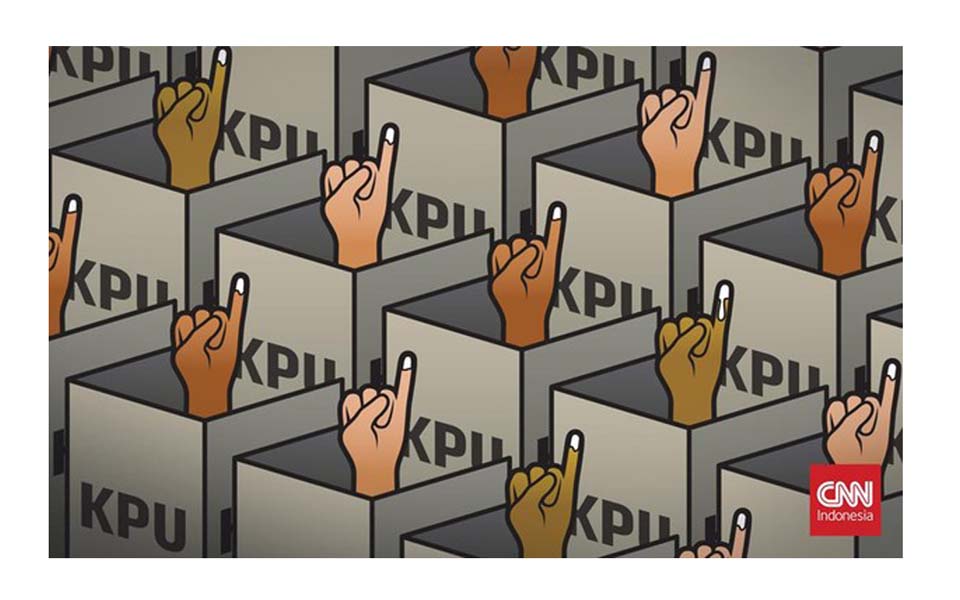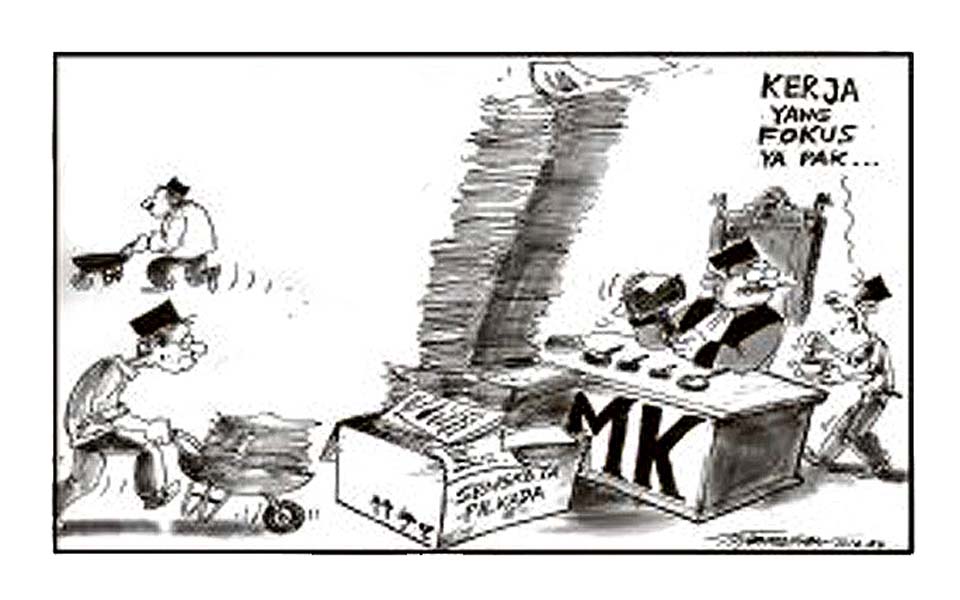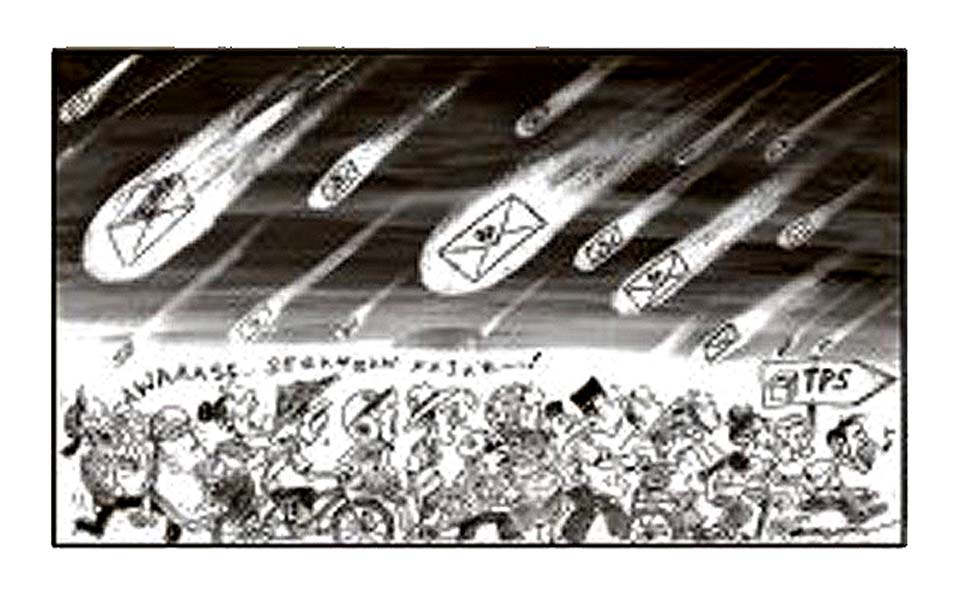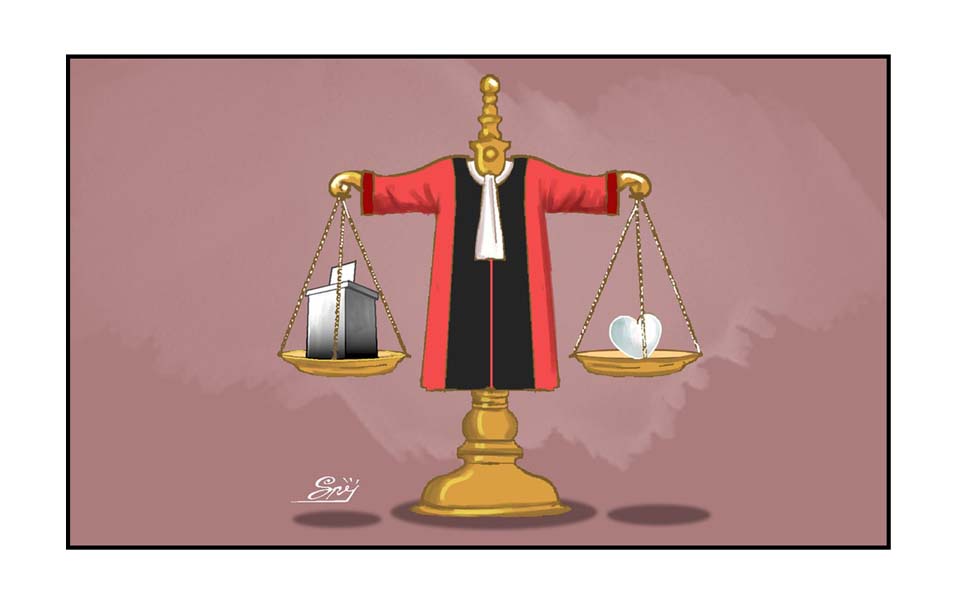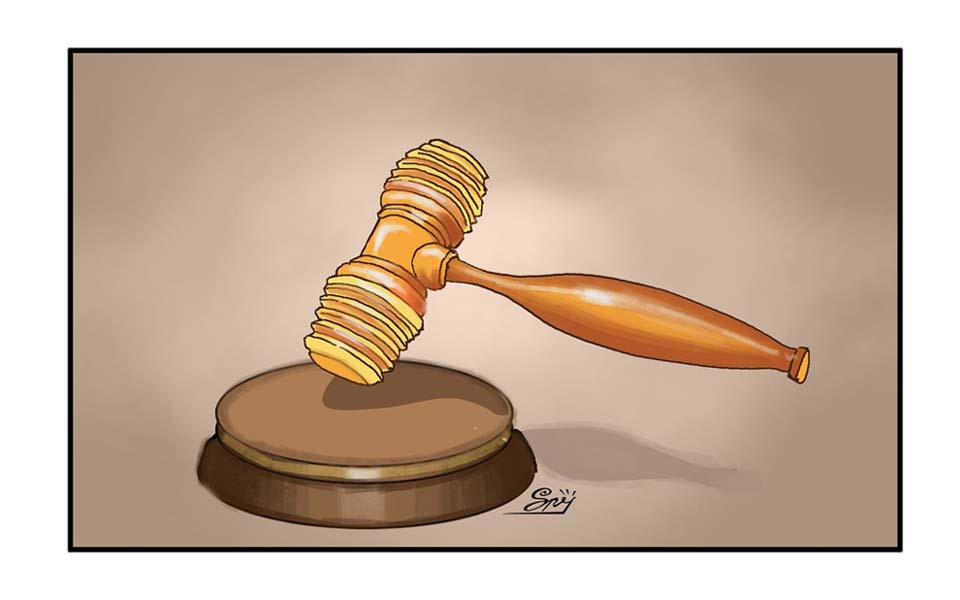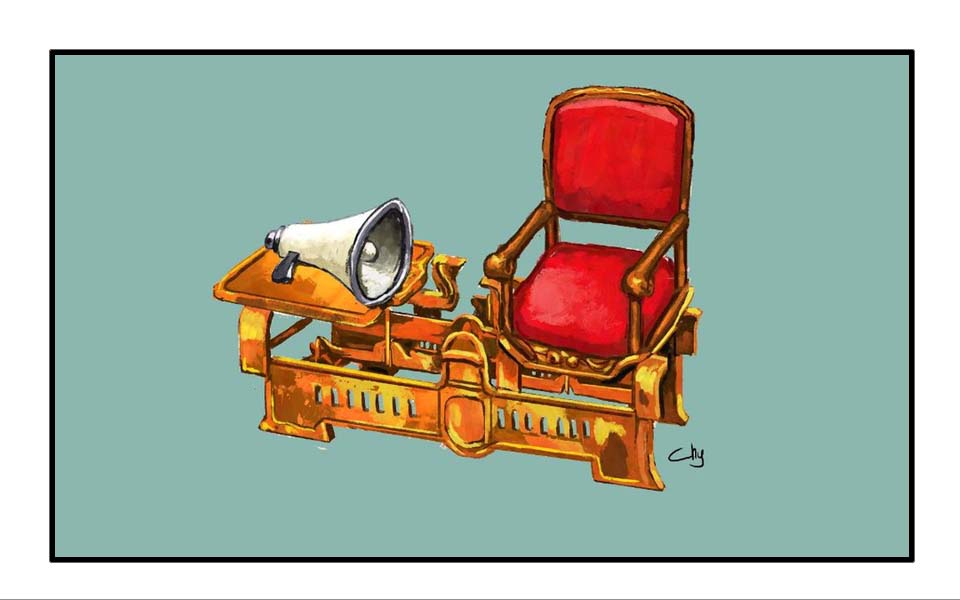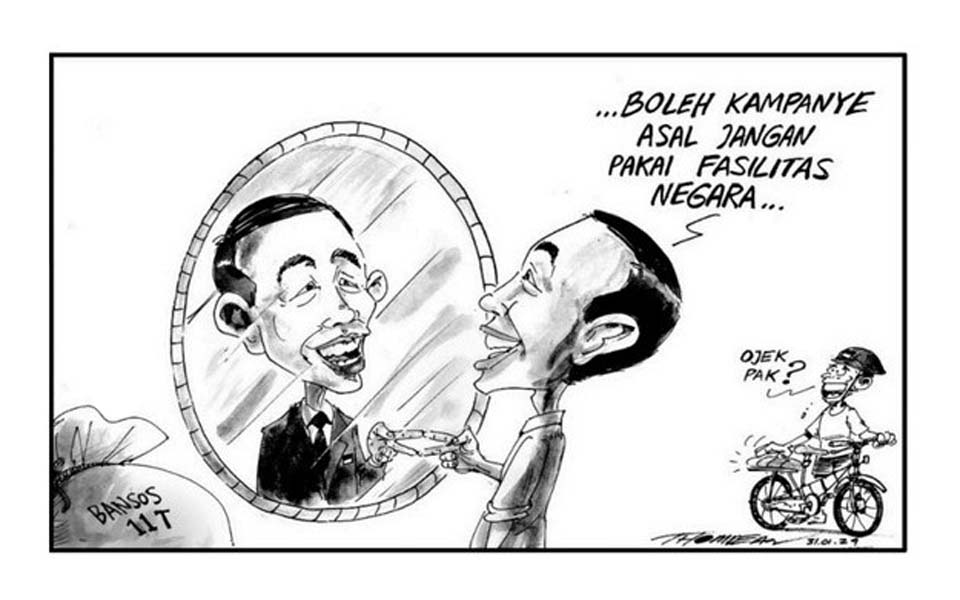
Writing on picture reads “Regional head”
Man: Before it was the father, now the mother, what next, the kids?
Kid: When do I get a go Dad?
A recent survey by the Kompas daily’s research and development department conducted by phone interviews on July 27-29 has found that many Indonesians are fed up with Indonesia’s thriving political dynasties.
Nearly 61 percent of the 553 respondents said they did not like the idea of family members of political leaders running as regional heads while 28 percent regarded political dynasties as normal and part of the democratic process in Indonesia.
The survey also revealed that 58 percent of respondents wanted a regulation to limit or bar family members of public officials from running in regional elections.
There have been previous attempts to limit the growth of political dynasties. In 2015 the House of Representatives passed the Regional Elections Law which barred family members of an incumbent from running as regional heads. The law however was later overturned by the Constitutional Court which argued that equal opportunity needed to be preserved for all.
Public discussion over political dynasties has intensified recently after a number of politically connected candidates announced they would take part in the upcoming 2020 regional elections.
President Joko “Jokowi” Widodo’s son Gibran Rakabuming Raka and son-in-law Bobby Nasution are running for the seats of Solo mayor and Medan mayor, respectively, while the fourth daughter of Vice President Ma’ruf Amin, Siti Nur Azizah, is joining the South Tangerang mayoral race.
All of the candidates have denied accusations that they are building political dynasties.
The Jakarta-based think tank Nagara Institute said recently that political dynasties had proliferated over the last three regional elections in 2015, 2017 and 2018. At least 80 regions – amounting to nearly 15 percent in total – were exposed to political dynasties during the period.
Nagara Executive Director Akbar Faizal said these finding are a strong indication of problems with the political parties’ recruitment systems and that oligarchies in the political parties, as reflected in the strengthening of political dynasties, would adversely affect democracy.
[Abridged from an August 4 article in the Jakarta Post titled “Many Indonesians fed up with political dynasties: ‘Kompas’ survey”: https://www.thejakartapost.com/news/2020/08/04/many-indonesians-fed-up-with-political-dynasties-kompas-survey.html.]





